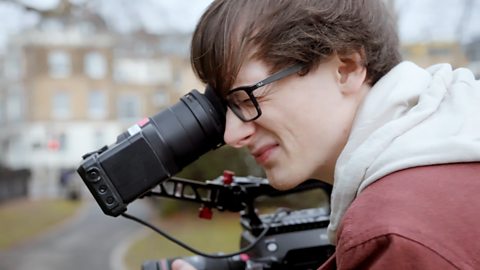Meet Bethany, 24, from Wolverhampton. She is a clinical photographer at Birmingham Children's Hospital. Part of our Bitesize world of work series.
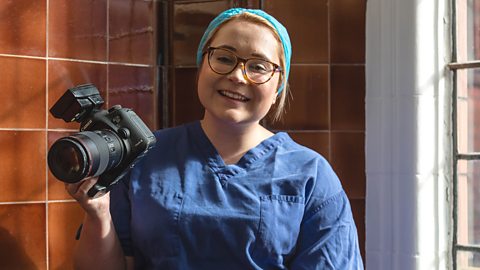
Photography wasn’t available at school so I went out of school to learn about it.
What is your job?
Every day is completely different in my role. The photographs I take are either to document the patient progression of conditions and their treatment, or for teaching purposes for trainee clinical staff. The images can also be used for research, audits and scientific and medical publications. We get requested to photograph patients on wards, in theatre, or in our studio. We also get called to the burns clinic. Once we’ve taken the photos, we then resize the images in preparation to add to the digital patient records.
It’s a very varied job, which can be challenging. There is a very sensitive aspect to my job as I also take pictures of children who are very ill or who have passed away, to give their family memories to treasure. It does have that rewarding nature, because you are doing something to help people in the long run.
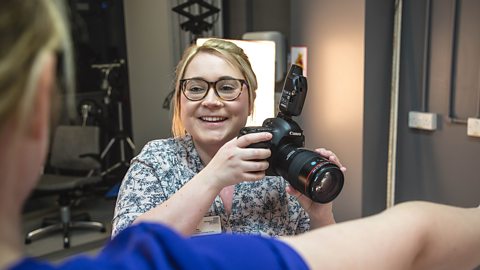
What skills do you use in your work?
You have to be confident and compassionate, be able to talk to people and put people at ease. You’ve got to be able to use a camera and know how to set and position lights. You have to be able to work in a team, organise where you’re going and what you’re doing. You need communication skills, especially the ability to talk to your team to say you might need time out to process something upsetting. Time management is important as there is a quick turnaround when editing.
Is this the job you always knew you wanted to do?
I always wanted to be a photographer and I’d done a Photography course in the evening outside school, which really helped me learn how to use a camera. That led me to do Photography at university. It was only in my second year at uni that I realised I wanted to do clinical photography.
What subjects did you study?
I did two Art GCSEs. I used to love English – being expressive and talking to people made me more confident. Photography wasn’t available at school so I went out of school to learn about it.
How did you get into your job?
One of the modules at uni was to look at possible career paths. My mum is a nurse so she was aware that this was a profession and suggested that I do some work experience and volunteer work to ensure that it was the right fit for me. When I was leaving uni, I was lucky because a few clinical photography roles were being advertised at the right time for me to apply for them. I knew straight away that I loved this hospital and the idea of working with children. I had to be a trainee for a year and a half. You have to do a postgraduate course in Clinical Photography until you become fully qualified. It’s a distance learning course alongside your work.


Top tips
- Art A-levels do help
- If Photography or Art isn’t an option, try and learn outside school – this helped me a lot
- Do work experience and volunteer work as it shows you’re keen and interested
- Ask questions and do as much research as possible
- Try and take as many photos as you can, get out and explore with your camera!

Clinical photographers are also known as medical illustrators. Medical illustrators produce photographs, videos and graphical images for use in healthcare.
What to expect if you want to become a medical illustrator
- Medical illustrator average salary: ÂŁ25,654 to ÂŁ39,026
- Medical illustrator typical working hours: 39 to 41 hours per week
What qualifications do you need to be a medical illustrator?
You could get into this role via a university course or working towards the role.
Sources: LMI for All, National Careers Service
This information is a guide and is constantly changing. Please check the for the latest information and all the qualifications needed.
Clinical photography is one of four specialist areas that medical illustrators may work in. Find out more on the Prospects website about the role of a .
For careers advice in all parts of the UK visit: , , and .

Find work experience placements with Workfinder.
Tips and advice
Help with interviews, writing a CV and all things work experience related.

Corinne: photographer. video
Corinne runs her own photography business.
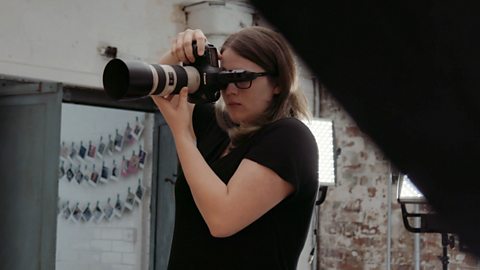
Tamsin: camera operator
Tamsin helps to make films and TV shows.
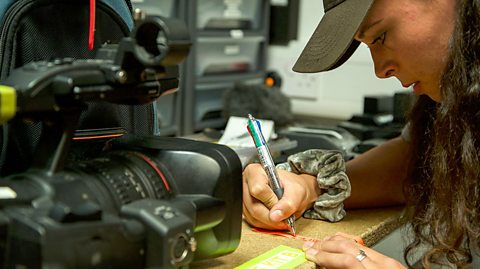
Toby: director of photography. video
Toby's a director of photography for a film production company.
